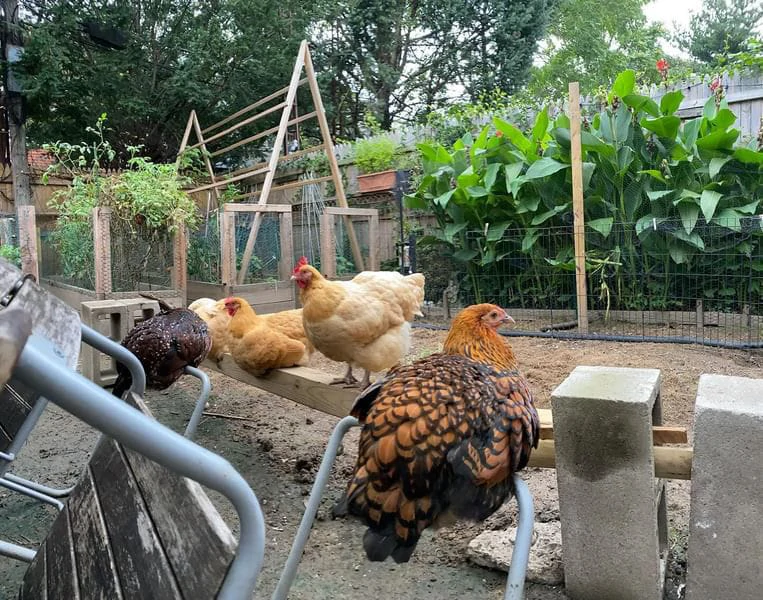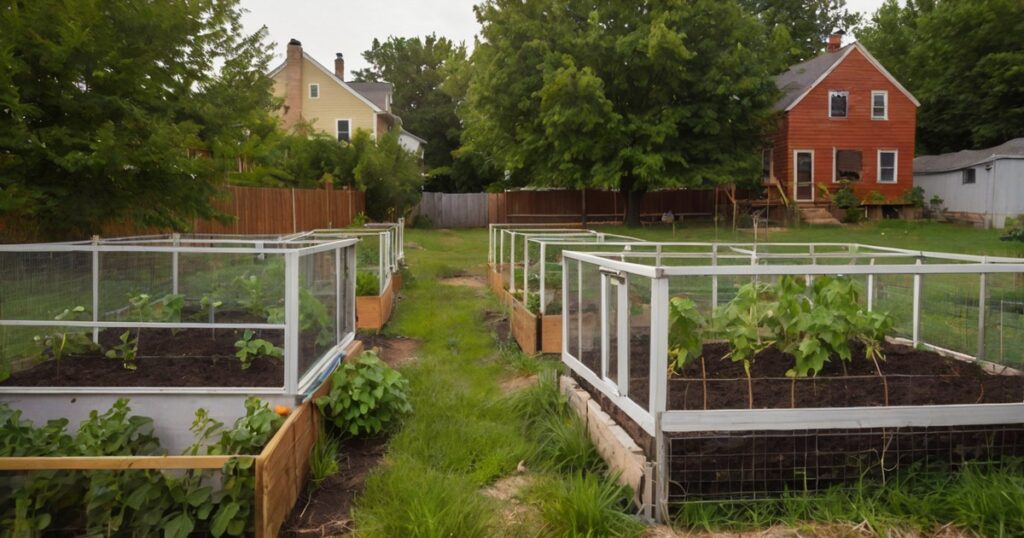Once I brought home chickens and bigs to my tiny city backyard. Well… not tiny enough for my neighbor who called animal control. That day I discovered legal challenges of urban homesteadin and trust me, there are plenty. Between zoning rules, neighbor complaints, and permit messes, it’s a wild mix. dont forget to check my story with bigs at my backyard
Having spent over a decade doing urban, backyard, and permaculture homesteading, I’ve learned the hardest way what’s allowed and what’ll get you fined or worse, lose your flock.
What Are the Legal Challenges of Urban Homesteading?
Homesteading isn’t illegal in the U.S. But laws vary wildly from one city to the next. You have to navigate local zoning, animal ordinances, property covenants, even HOA rules. A bird that’s legal in one city might be banned two miles away.
Here’s where the friction usually shows up:
Zoning & Permits
In most cities, animal keeping is regulated by zoning codes. These determine what’s allowed on residential lots. Chickens, goats, rabbits even compost bins can raise flags. You may need a permit or variance to do what you want.
For example, Fort Collins grants urban agriculture licenses for chickens, goats, and farm stands in all zones but you must apply and follow guidelines.
Limits on Livestock & Number of Animals
One common issue: how many hens can you have? Many cities cap it at 3 OR 6 hens, no roosters, no free ranging birds. Violating that? You could get fined or lose your flock.
Some places like Thurston County, WA allow up to five hens on small lots and more if the property’s bigger. Roosters generally aren’t allowed.

Nuisance Complaints & Health Concerns
Neighbors complaining about noise, smell, or pests is real. People worry about bird flu or salmonella too. Local codes often mention nuisance issues like odor, attracting rodents, and coop cleanliness. Failure to keep a tidy coop can lead to citations.
I had a case when neighbors were annoyed at my chicken coop smell. Even though I cleaned weekly, they complained to the HOA. It took months to sort out.
Property Covenants & HOA Rules
Some neighborhoods have private covenants that forbid livestock, including “loitering fowl.” These can be stricter than municipal law. Even if your city allows chickens, your HOA might demand you remove them. I lost my rabbit once over a covenant violation even though the city was cool with it.
Slaughtering, Composting & Food Sales
If you want to butcher chickens, or compost manure, or sell produce, check regulations carefully. Many jurisdictions ban home slaughter or require licensed facilities. Likewise, composting rules vary widely some cities treat manure as hazardous waste.
My Real Lessons (What I Learned the Hard Way)
One time I thought backyard hens were legal in my town. Turns out roosters were banned and I had a rooster. Funny until the city inspector showed up at 7 a.m. Lesson: always check for rooster rules.
Someone I know moved five miles away only to realize the new town banned chickens. She had to give them away even though her old city was totally fine with them. Urban homesteading laws can change block by block.
Another friend in Florida fought laws after Port St. Lucie banned chickens. In neighboring Clermont, they passed a law allowing up to five hens same region, different rules.
My Top Survival Tips When Facing Legal Challenges of Urban Homesteading
1. Research Local Ordinances
Look up your municipal code online, ask for “zoning code,” “poultry ordinance,” or “urban agriculture license.” If it’s unclear, call the county or city building department. I once relied on city blog info that was outdated big mistake.
2. Talk to Neighbors First
Before building a coop or buying some hens, let neighbors know. Offer eggs or compost. Most of mine warmed up when I gave fresh eggs. When they know you, a little sound or smell goes easier.
3. Keep It Clean & Compliant
Regular coop cleanings, proper waste disposal, and enclosed runs help. Follow setback rules from property lines. Even if the law isn’t airtight, good behavior builds goodwill.
4. Be Ready to Change or Appeal
Some places let you apply for exceptions or waivers. I helped a friend petition her city to allow a small garden market stand we won by showing community and sustainability benefits.
5. Start Small
Begin with just a few hens, or even compost worms or balcony gardens. No need to smuggle a flock before you know the rules. You can gradually scale once you’re legal and confident.
Mini FAQ: Your Real Questions Answered
Q: Can I keep chickens in any city?
A: Not always. Some cities allow hens with limits and permits. Others ban all fowl. Roosters are almost universally banned in city limits. Always check local regs.
Q: What if I just want a small garden or compost bin?
A: Even composting and bees get regulated sometimes. Zoning laws might ban front yard food gardening. Check municipal code first. Many cities have started permitting community gardens.
Q: Can I sell eggs or produce from my urban homestead?
A: Selling often triggers food safety laws. Some cities allow personal-use eggs only. Markets or farm stands usually need business permits, inspections, and liability coverage.
Final Thoughts on Legal Challenges of Urban Homesteading
These legal challenges of urban homesteading aren’t there to ruin your life they’re about balancing safety, noise, property, and health. But they’re real and you gotta deal with them.
Every city is different. Research. Build relationships. Keep it clean. Start small. Fight for change if you need to. I’ve made mistakes lost hens, got fined, almost had my coop removed but it taught me how to be smarter and kinder in my approach.
If you’re curious about your local laws or want help figuring out what’s allowed in your town, drop me a note. I’ve been there and I’m happy to help sort through the mess.
Got a weird neighborhood rule or a chicken-cop story? Comment below I actually answer.



